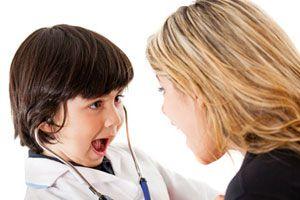Meningococcen
WHAT IS MENINGOCOCCAL?
The bacterium neisseria meningitides causes the infection. One in four people are harmless carrier of the bacterium in the nose and throat. Meningococcal bacteria does not survive outside the body. Close contact is needed to transmit it, such as intimate kissing, coughing, or sneezing close to each others. Children under the age of 5 years and teenager have the highest risk.
WHAT ARE THE SYMPTOMS?
The symptoms are a stiff neck, high fever, rash, sensitivity to light, seizures, headaches, vomiting, drowsiness, poor feeding and high pitched crying. The disease can progress to general infiltration of the body with invasion of the coagulation system in the blood and the adrenal glands leading to sepsis.
WHAT ARE THE COMPLICATIONS?
It causes severe brain damage and is fatal in 50% of cases if untreated. Even with treatment 10 – 20 percent of children can develop disabilities such as mental retardation, hearing loss and seizures and 10 – 25 percent of children can die even when the infection is recognized early within 24 – 48 hours and treated with antibiotics.


















































